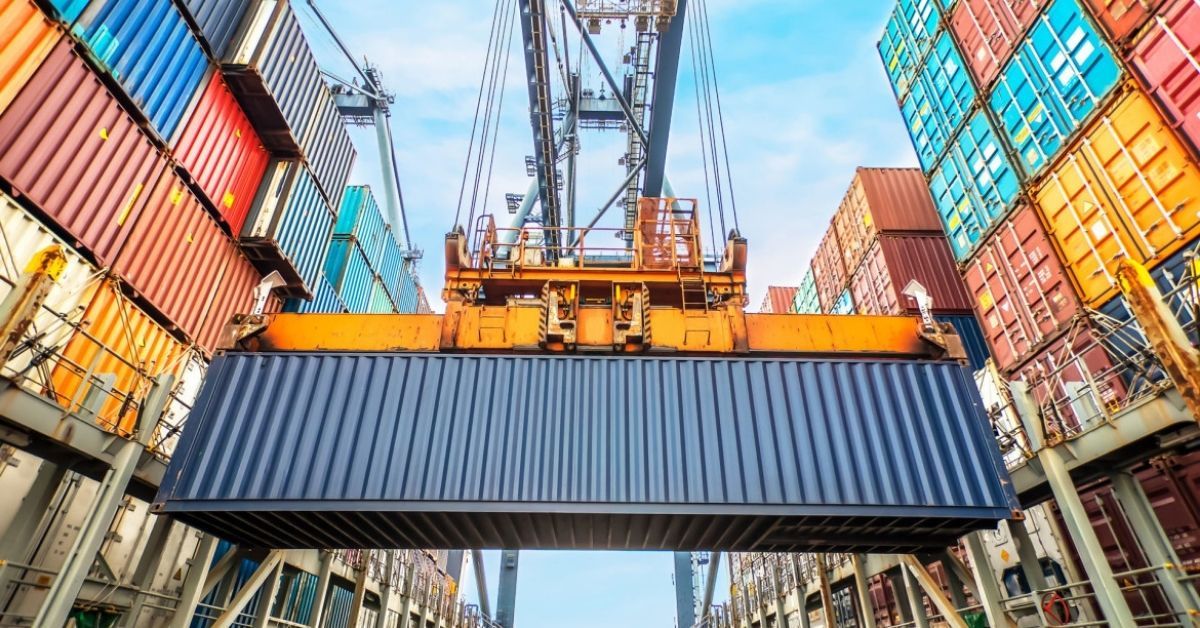India’s Shipping Ministry is likely to delay the launch of its ₹11,000 crore PLI scheme for container making given changed market conditions and glut in supply, officials aware of the discussions said.
Officials say, one of the biggest apprehensions surrounding the scheme continues to be its acceptability primarily in view of the “excess availability of containers in the market at the moment.”
Bhavnagar in Gujarat was initially identified as one of the hubs for contained manufacturing and some companies reportedly began operations there too.
When the scheme was initially floated or mooted there was a shortage of containers in the market, especially in India. Chinese manufacturing had not restarted at pre-Covid levels. But now, there is an excess supply of containers globally, some are lying empty in Chinese ports too,” the official said.
In the backdrop of slowing global trade, shipping and container prices continue to moderate.
Apprehensions are rife that there may not be takers in the market for additional capacity that could be created. In such a case, coming out with incentives for manufacturing of containers may not be a good move, “and there may not be many takers too”, the official pointed out adding that the matter is being discussed “internally”.
“To be fair, the scheme has not been shelved. But it is not a good time to launch the scheme at the moment. There may not be takers. There will be a rework in timelines, deliverables and perhaps even the incentives. Manufacturing incentives could be over a shorter period perhaps. All this is under discussion now,” the official said.
Initial plans
As per the initial plans, the ₹11,000 crore PLI scheme was mooted spread over a nine-year period, beginning 2024-25, for the manufacture of shipping containers. The scheme intended to push manufacturing and compete with China, garnering at least 10 per cent of demand from global liners.
According to a previous Cabinet note accessed by businessline, of the nine years of outlay, incentives for the first five years will be fixed, while for the next four years, it will be in “tapering fashion or in decreasing order”. The push will be towards the manufacture of 20 ft and 40 ft length containers (called standard containers). These include dry storage containers, flat rack containers, open-top containers, open-side storage containers and refrigerated ISO containers.
Two incentive schemes are under discussion then.
Gloomy outlook
Inter-ministerial committee-level discussions that are reportedly underway to re-work the scheme, at present, have mentioned that freight rates corrected in 2023 to pre-pandemic levels, from the 2021 and 2022 peaks. According to a Shipping Ministry official air freights are down to 8 -9 per cent-odd while shipping rates are down 60 per cent on a y-o-y basis.
Container shipping companies, whose performance is seen as a bellwether for global trade, have reported tumbling revenues and profits amid falling freight rates as vessel supply outstrips demand.
Maersk, the shipping major, is expected to cut jobs amidst rigorous cost-cutting measures following a 90 per cent-odd drop in profits particularly attributed to slowing global trade.
Hapag-Lloyd, the German player, saw an 80 per cent decline in profits for the nine-month period and also cut its full-year guidance on a continuing gloomy outlook.
According to Varun Gogia, Assistant Vice President, – Corporate Ratings, ICRA Ltd, container shipping rates adjusted for inflation have “plummeted to pre-Covid levels amid a weak economic outlook and rising capacity of shipping lines”. The increase in the interest rates by the central banks has led to a weak demand outlook. “The cashflows of the shipping lines have moderated as the freight rates have moderated sharply from record high levels while the bunker rates have moderated to a lesser extent,” he said.
Chinese dominance
Incidentally, container manufacturing is dominated by China globally with the country meeting nearly 90 – 95 per cent of the demand. Of this, three state-owned enterprises dominate manufacturing.
India too depends on China for such supplies with CONCOR (Container Corporation of India) importing its stockpile of nearly 40,000 containers from China.
For the April – October period container cargo handled across 12 major ports in India stood at 7128 twenty equivalent units (TEUs), an 8 per cent rise y-o-y, over the 6586 TEUs handled earlier.







